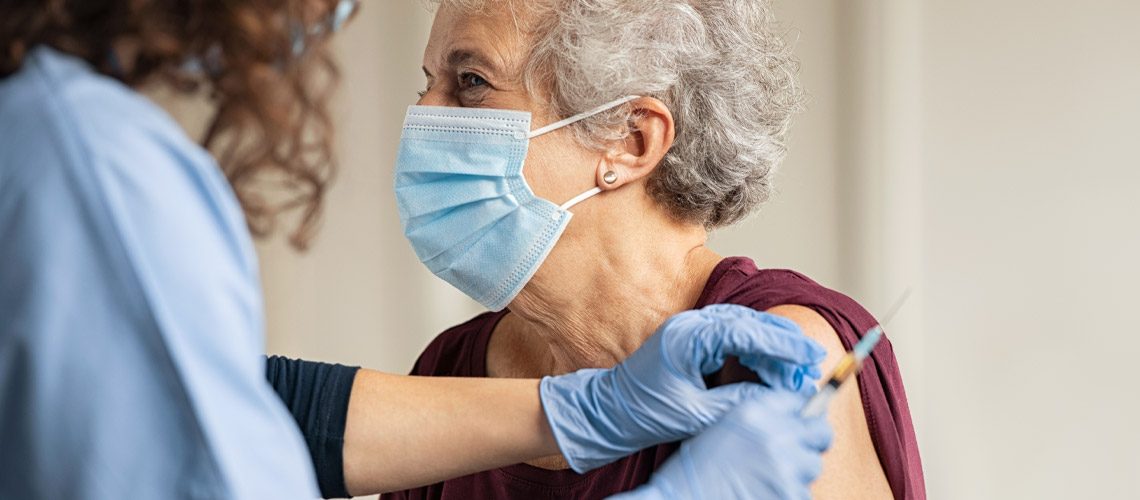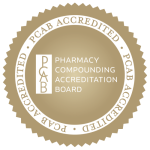This year, the pandemic caused by COVID-19, has led to the loss of many loved ones, friends, and acquaintances. We all have been working hard to follow the Centers for Disease Control and Prevention (CDC) guidelines by wearing masks, social distancing, and washing hands to help prevent us from getting sick, and control the pandemic. Lately in the news we have heard about the approval of vaccines against COVID-19, but what does that mean for us? When can we get them? How do we know they are safe? This blog post is meant to help answer some of the questions commonly asked about the vaccine, explain the vaccines that have been approved and their differences, when the vaccines will be distributed, and what to expect when you get the vaccine.
WHAT ARE MRNA VACCINES?
One common question people have regarding the COVID vaccine is how does it work and how is it different from other vaccines? Traditional vaccines work by using a weakened or inactivated virus. The virus is injected into the body, which recognizes it as foreign and works to get rid of it, without getting us sick. This immune response leads to the formation of antibodies which prevent us from getting the disease in the future. The COVID vaccine is different because it does not contain a weakened or inactivated virus at all. Instead, it sends instructions (messenger RNA or mRNA) to cells on how to make a “spike protein,” which is a harmless protein that is found on the COVID virus. When the vaccine is injected into the arm, the immune cells in the body recognize this protein as foreign, and work to get rid of it, just like traditional vaccines. After our immune system has fought off the protein, we are left with antibodies that could prevent us from getting COVID-19 in the future. One concern that has been brought up about the way this vaccine works is whether or not it can interfere with the cells in our body and interact with our own DNA. This is not true, as it does not enter the nucleus of the cell, where our DNA is stored. The vaccine does not interact with DNA at all. The cells that make the protein also break down and get rid of the mRNA once it has finished doing it’s job.1
THE PFIZER VACCINE VERSUS THE MODERNA VACCINE
The first COVID vaccine that was approved was the one developed by the drug company, Pfizer. This vaccine is a 2 dose series that is given once, and then again 21 days later. It is approved for patients age 16 or older. This vaccine has been shown in studies to be 95% effective after both doses, and results from these studies were published on December 10, 2020. In this study, there were 36,621 participants who were randomized to get either the vaccine or a placebo. Of the patients who received the vaccine, only 8 got COVID-19, while 162 in the placebo group got COVID-19. The most common side effects seen in patients who received that vaccine were pain and irritation at the injection site, tiredness, and headache.2
The second COVID vaccine that was approved was the one developed by the drug company, Moderna. This vaccine is also a 2 dose series, but is given once, and then again 28 days later. It is approved for patients age 18 or older. This vaccine has been shown in studies to be 94.1% effective after both doses, and results from these studies were published on November 30, 2020. In this study, there were 30,350 participants who were randomized to get either the vaccine or a placebo. Of the patients who received the vaccine, only 6 got COVID-19, while 92 in the placebo group got COVID-19. There were no cases of severe COVID-19 in the group who received the vaccine, while there were 30 severe cases in the placebo group. The most common side effects seen in patients who received the vaccine were pain and irritation at the injection site, tiredness, chills, headache, and muscle pain.3
BENEFITS OF GETTING VACCINATED
Getting vaccinated against COVID-19 is the best and safest thing you can do to prevent the spread of the virus. COVID-19 can have serious, life-threatening complications, and there is no way to know how COVID-19 will affect you. If you get sick, you could spread the disease to friends, family, and others around you. COVID-19 symptoms can last for months. The virus can damage the lungs, heart, and brain, which increases the risk of long-term health problems. Even young, otherwise healthy people can feel unwell for weeks to months after infection. By getting vaccinated, you are preventing yourself from getting the virus, or are making it less severe if you do get it. You also will be protecting those who are at a greater risk of getting COVID-19 and rely upon others to get vaccinated in order to not get sick. This process is called herd immunity. There have been warnings against certain people getting the vaccine, such as children younger than 16 years of age, pregnant people, people who carry Epipens, and people with certain medical conditions. If you fall under one of these categories, you may need to speak with your doctor to see if the vaccine would be beneficial for you. These patients may have been excluded from studies, therefore more evidence is needed to determine the safety of the vaccines in these patients. Overall, we can control the spread of the virus by following the Centers for Disease and Prevention (CDC) guidelines and getting vaccinated.4
TIMELINE OF VACCINE DISTRIBUTION
It is hard to say for sure when the vaccine will be available to everyone, but it likely will not be until Spring 2021. The distribution of the vaccine is determined by each state, with recommendations from the CDC on who should get vaccines first. North Carolina has 4 phases of vaccine distribution, and as of December 28th we are in phase 1A. Phase 1A restricts vaccination to healthcare workers and people in nursing homes. Phase 1B will include other frontline workers such as grocery store employees, teachers, firefighters, and law enforcement. Phase 2 will include people who are older than 65 and those with chronic medical conditions. Phase 3 will include students and workers at universities. Phase 4 will include everyone else in the general population who would like to receive a vaccine.5 Moving into phase 1B and the following phases is dependent on the number of vaccines available, therefore it is unknown, at this time, when that will occur.6 As of now, manufacturing companies are working on creating more vaccines so that we can move on to the next phase. This process is expected to take a few months, so it may not be until March or April before most people can receive the vaccine.
WHAT SHOULD I EXPECT ONCE I GET THE VACCINE?
With the COVID-19 vaccines, some patients experience no symptoms afterwards, while some patients do. The most common symptoms patients experience after getting vaccinated are pain or swelling in the arm where they were injected, chills, mild fever, tiredness, and headache. Although these symptoms feel like the flu, and can even affect your ability to do daily activities, they are typically mild and last for only a couple of days. It is also important to know that you will need two shots in order for these vaccines to work. Even if you have side effects after the first shot, you should still get the second, so you are protected from the virus, unless advised otherwise by your doctor. Vaccines also do not work right away. It takes 1 to 2 weeks for these vaccines to work fully, so you are not completely protected until that time has passed since being vaccinated.7 Since the vaccine studies are still in progress, we do not yet know how long the vaccines will protect you against COVID-19. However, it is still important to get vaccinated as this is currently the best and safest thing to do to prevent you from getting sick.
WHAT DO I DO WHILE I’M WAITING FOR THE VACCINE TO BE AVAILABLE?
The best thing you can do while waiting for the vaccine to be available to the public is to continue following CDC guidelines to prevent the spread of infection. This includes washing your hands frequently, wearing masks, maintaining social distance, and avoiding large crowds or gatherings.8 While getting vaccinated is a huge step towards ending the pandemic, it is still very important that everyone follows these guidelines to prevent the spread of the virus.
REFERENCES
- Understanding and explaining mRNA COVID-19 vaccines | CDC. https://www.cdc.gov/vaccines/covid-19/hcp/mrna-vaccine-basics.html. Updated 2020. Accessed Dec 28, 2020.
- Polack FP, Thomas SJ, Kitchin N, et al. Safety and efficacy of the BNT162b2 mRNA covid-19 vaccine. New England Journal of Medicine. December 2020. https://doi.org/10.1056/NEJMoa2034577. Accessed Dec 28, 2020.
- A phase 3, randomized, stratified, observer-blind, placebo-controlled study to evaluate the efficacy, safety, and immunogenicity of mRNA-1273 SARS-CoV-2 vaccine in adults aged 18 years and older. 2020. https://clinicaltrials.gov/ct2/show/NCT04470427. Accessed Dec 28, 2020.
- Benefits of getting a COVID-19 vaccine. Centers for Disease Control and Prevention Website. https://www.cdc.gov/coronavirus/2019-ncov/vaccines/vaccine-benefits.html. Updated 2020. Accessed Dec 28, 2020.
- COVID-19 vaccine 101. NC Department of Health and Human Services Website. https://files.nc.gov/covid/documents/COVID19-Vaccine-101-Deck-Final.pdf. Published Dec 17, 2020. Accessed Dec 28, 2020.
- Burns M. When can anyone in NC get coronavirus vaccine? state officials say timeline uncertain. WRAL Website. https://www.wral.com/coronavirus/when-can-anyone-in-nc-get-coronavirus-vaccine-state-officials-say-timeline-uncertain/19423317. Updated 2020. Accessed Dec 28, 2020.
- What to expect after getting a COVID-19 vaccine. Centers for Disease Control and Prevention Website. https://www.cdc.gov/coronavirus/2019-ncov/vaccines/expect/after.html. Updated 2020. Accessed Dec 28, 2020.
- How to protect yourself & others. Centers for Disease Control and Prevention Website. https://www.cdc.gov/coronavirus/2019-ncov/prevent-getting-sick/prevention.html. Updated 2020. Accessed Dec 28, 2020.
- Share
- Tweet
- Share
- Share




